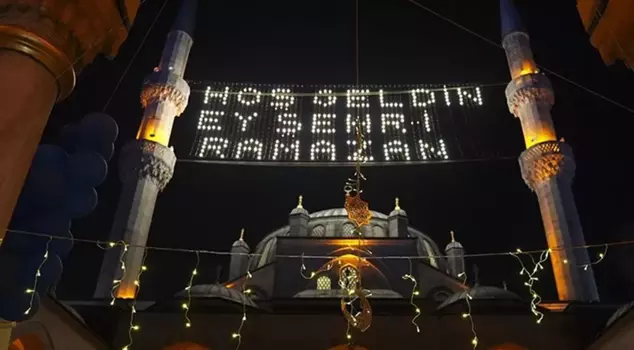
22.02.2025 15:20
According to the Presidency of Religious Affairs' High Council of Religious Affairs, the crescent of the month of Shawwal will be sighted on the evening of the 29th day of Ramadan, so this year Ramadan will last for 29 days.
The first Tarawih prayer of the Sultan of eleven months, Ramadan, will be held on Friday, February 28, and the pre-dawn meal (suhoor) will be taken on the night connecting February 28 to March 1, with the first iftar being held on the same day.
THE NIGHT OF POWER ON MARCH 26
In this month, where acts of worship such as fasting, Tarawih prayer, fitra, Quran recitation, and the completion of the Quran are performed, and the needs of the needy are monitored more than ever, the Night of Power, which is stated in the Quran to be "better than a thousand months," will be observed on March 26. Ramadan Feast will begin on March 30.
This year, the amount of fitra has been determined as 180 lira by the High Board of Religious Affairs.
NEEDY PEOPLE SHOULD BE GIVEN PRIORITY
Halit Çalış, a member of the High Board of Religious Affairs, told AA correspondent that Ramadan is one of the time periods that Muslims eagerly await with joy and excitement.
Çalış emphasized that every moment of Ramadan should be seen as an opportunity and that it is very important for Muslims to spread the practice of hosting iftar at their homes throughout Ramadan.
Çalış stated, "Undoubtedly, priority should be given to the needy during Ramadan. We should not neglect our relatives either."
Reminding that Ramadan is also the month of the Quran, Çalış drew attention to the importance of engaging more with the Quran during this month.
"THE HIJRI CALENDAR IS 10-11 DAYS SHORTER, SO SOMETIMES FASTING LASTS 29 DAYS"
Çalış pointed out that the Hijri calendar is used to determine the time periods of religious practices, stating, "The beginning and end of fasting occur in the month of Ramadan. The month of Ramadan is one of the months in the Hijri calendar. Since the Hijri calendar, which is also a lunar calendar, is 10-11 days shorter than the Gregorian calendar, a year consists of 354 days. Therefore, the month of Ramadan comes 10-11 days earlier each year. Thus, the reason why the Ramadan fast is sometimes observed for 29 days and sometimes for 30 days is due to this."
Çalış noted that Muslims should increase their charitable giving during Ramadan, saying, "Many of our people around the world are suffering under oppression, crying in blood and tears, and struggling with hunger and poverty. Therefore, we should continue the zakat and charity we increase during Ramadan throughout the year. We cannot live a comfortable life while such a situation exists."